In an age of white noise Christopher Pyne’s A Letter to My Children (MUP, $33) stands out as a loving biography of his father, Remington, and his belief in the value of public service. Pyne mixes this with an explanation to his own children about why he chose a life that can be tough on family connections. Making a contribution, he concludes, is what good people should do in a civilised society.
George Megalogenis has a good way of mixing statistical analysis with cultural history, and in Australia’s Second Chance (Penguin, $35) he argues that the country has performed best during outward-looking periods, when immigration levels have been high. Insularity can be tempting and can strike a populist chord but it inevitably imposes economic and social costs. Bill Shorten, take note.
Battleground: Why the Liberal Party Shirtfronted Tony Abbott (MUP, $30) by Peter van Onselen and Wayne Errington has the feel of a rush job, lacking the depth of the authors’ book on Howard. But it has some good points to make, about Abbott’s inability to make the transition from opposition leader to PM, his failure to learn from mistakes, and his outright misjudgements. Van Onselen and Errington significantly underplay Abbott’s achievements but the book should not be dismissed, even if the real story is still to be written.
Monash (ABC Books, $40) is not the first examination of the famous general but Grantlee Kieza’s biography nevertheless finds some new things to say, mainly by drawing on letters and documents. He focuses on the private – and rather morally ambiguous – life of Monash, not so much for its own sake but for how it affected his public actions.
Jill Margo’s Frank Lowy: A Second Life (HarperCollins, $50) looks at the latter part of the life and career of Lowy, following on from her earlier book Pushing the Limits. As founder and head of Westfield, Lowy has made a huge contribution to Australia’s commercial life but has also had an impact in sport and politics. He is not always likeable, but he has undeniably made a mark in the world.
Magda Szubanski is mainly known as a comedian but has had to deal with personal issues ranging from body image to sexuality. The core of Reckoning (Text, $50), however, is her attempt to come to terms with the knowledge that her father had been a cold-blooded assassin of collaborators during WW2. She eventually realises that history might be a part of us but we are what we choose to be.
Blood Year: Terror and the Islamic State (Quarterly Essay, Issue 58, Black Inc, $23) by David Kilcullen is even more relevant at the end of 2015 than when it appeared. Kilcullen is a former Australian Army officer, now an adviser to governments, and he writes with admirable cool-headedness. He lays out the history of Islamic State, its ideology and its goals. None of it is pleasant reading but it is a crucial contribution to the field.
Rob Mundle’s books have explored Australia’s maritime history, and in Great South Land (ABC Books, $45) he turns his authoritative hand to the period before James Cook. There were a number of Europeans who encountered Terra Australis Incognita in the seventeenth century: some were lost, some had been blown off course, and some were simply wandering. The Dutch, starting with Willem Janszoon, were the key players, and Mundle’s account ends with the English adventurer William Dampier in 1688. One of the most interesting parts of the book is the appendix where Mundle explains how his research came together.
Several outstanding novels from Australian authors appeared in 2015, with one of the most memorable being A Short History of Richard Kline (Penguin, $30) by Amanda Lohrey. An examination of the alienation and ennui of modern life, and the possibility of spiritual renewal, it unfolds quietly into a satisfying, mature story.
The Secret Son (Allen & Unwin, $30) is the first novel of Jenny Ackland but she cannot be faulted for imaginative ambition. Ned Kelly secretly fathered James, apparently, who was wounded and left for dead at Gallipoli, eventually finding a home in a Turkish village. His story is counterposed with another, set in more recent times, of a young Turkish-Australian and an historian setting out to track down the story. Ackland holds this complex narrative together with a beautiful sense of place and character.
Tim Winton’s novels are known for their sense of the landscape, and Island Home (Penguin, $40) finds him trekking around the country to find locations of resonance and meaning. The book stands on its own but can also be read as providing greater depth to his novels and those who move through them. We are, in the end, a people poised between the desert and the beach.
This reviewer’s annual Trees Are Dying For This award (for the most unnecessary book of the year) goes to Kerry O’Brien’s Keating (Allen & Unwin, $50). The obsession of the Press Gallery and the ABC with Keating has always been difficult to understand; that it continues in 2015 is baffling. A good part of this doorstop-size book is drawn from O’Brien’s television interviews with Keating, and it is hard to find much that is both new and interesting. The Keating era is a long time ago, although not long enough.
A close runner-up for the TADFT prize is The Dismissal (Penguin, $40) by Paul Kelly and Troy Bramston. They claim that the book is justified by new information but it turns out to be a few snippets about who might have said what to whom. Kelly has written copiously about the main events of the book before, so The Dismissal feels like a re-hash of a re-hash. It is chiefly for the Maintain the Rage brigade but, well, it was forty years ago, guys. Get over it.
A tasty morsel of a book is Doughnut: A Global History (Reaktion Books, $25) by Sydney writer Heather Delancey Hunwick. She traces the surprisingly deep origins of the doughnut and its evolution to its modern, world-conquering form. She also reveals how the defining feature, the hole, came about. An enjoyable, charming antidote to all those weighty tomes by celebrity chefs and diet dictators. Bon appétit.
Got something to add? Join the discussion and comment below.
Get 10 issues for just $10
Subscribe to The Spectator Australia today for the next 10 magazine issues, plus full online access, for just $10.
Derek Parker is a regular book reviewer for The Spectator Australia.
You might disagree with half of it, but you’ll enjoy reading all of it. Try your first month for free, then just $2 a week for the remainder of your first year.

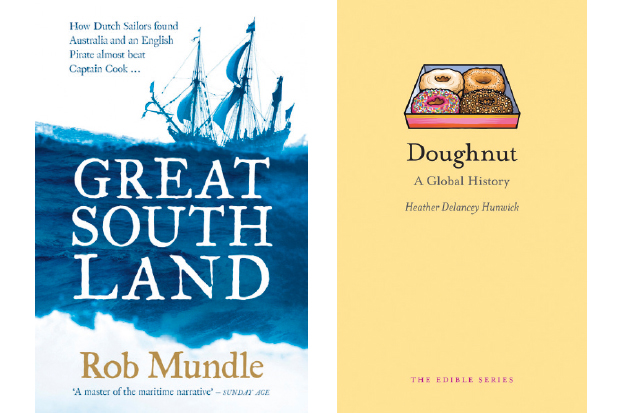
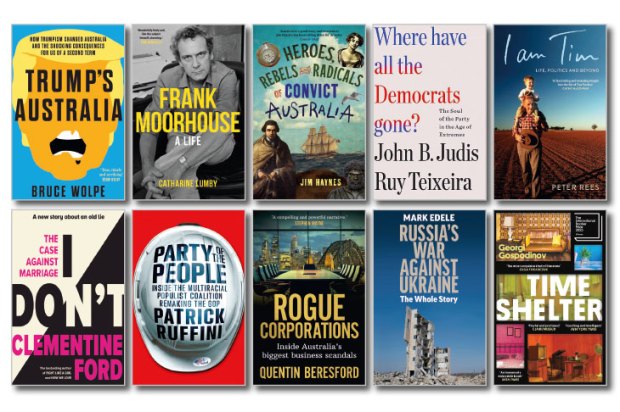
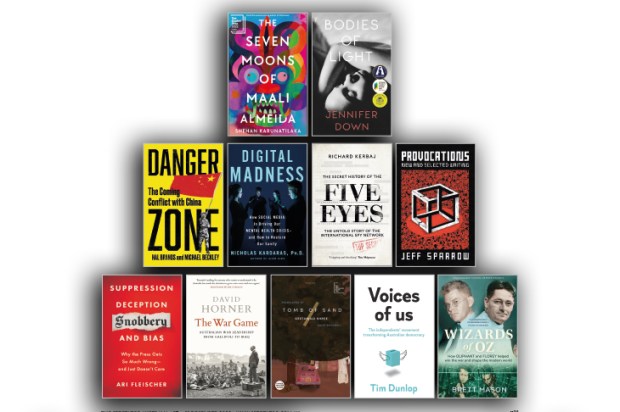
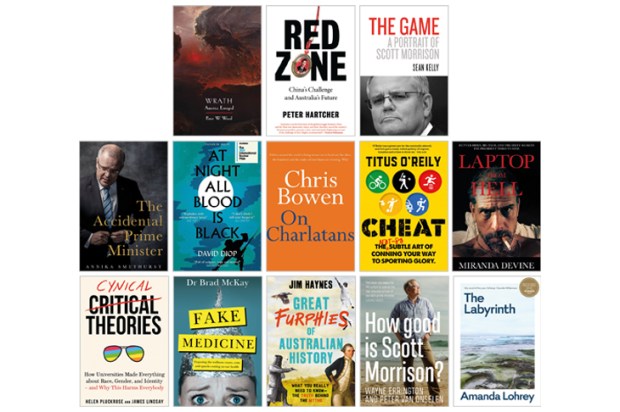
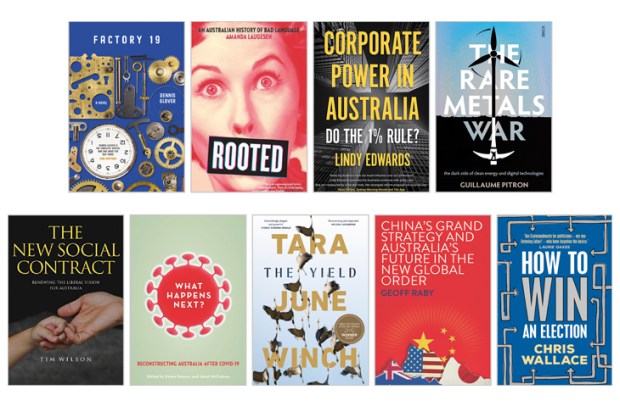
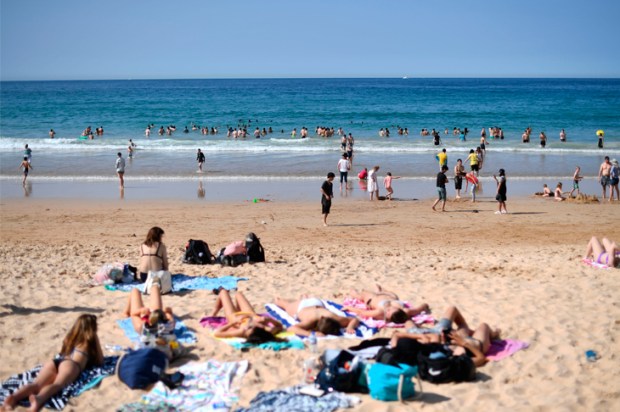
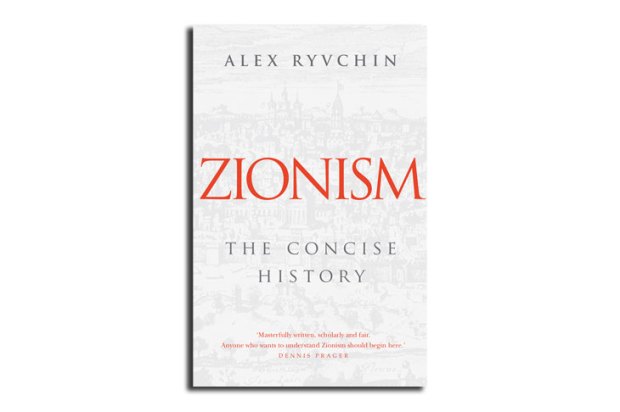






Comments
Don't miss out
Join the conversation with other Spectator Australia readers. Subscribe to leave a comment.
SUBSCRIBEAlready a subscriber? Log in